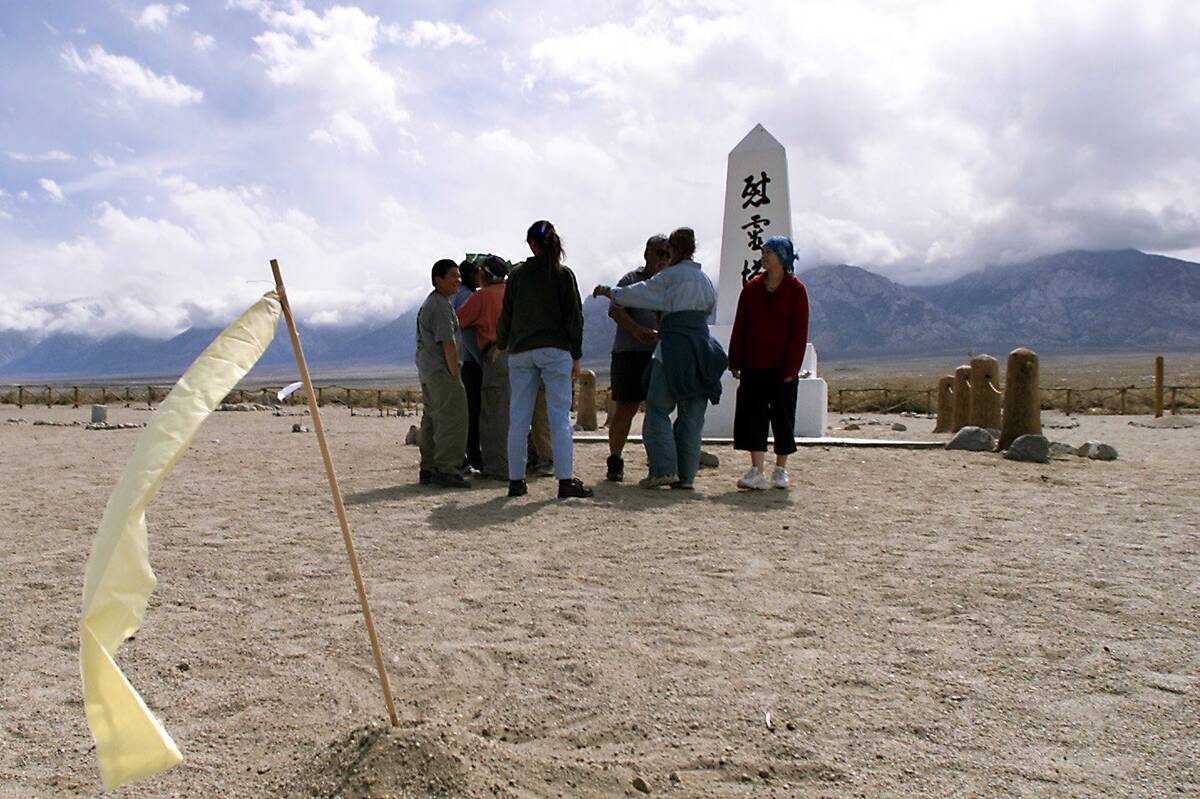RUBEN NAVARRETTE JR.: Japanese Americans were wronged, and California needs to make it right

Human nature doesn’t always make for better human beings. Our instinct is to put the bad stuff behind us.
In California, a newly created reparations task force is hard at work being “woke.” Recently, the task force voted to limit eligibility of any future cash payments to those Black Californians who can prove that they’re directly descended from an enslaved person or from a free Black person who lived in the United States before the end of the 19th century. If reparations are approved by the Legislature, only a fraction of the 2.3 million African Americans in California would collect.
Yet there is another group of Californians that is also richly deserving of reparations — especially because, back in the day, the Golden State exploited their suffering to amass more gold.
Eighty years ago, with the United States at war with Japan, and Americans still reeling from the attack on Pearl Harbor a few months earlier, prejudice ran wild.
On Feb. 19, 1942, President Franklin D. Roosevelt signed Executive Order 9066, which authorized the creation of “military zones” where the government could incarcerate a group of Americans whose loyalty was suddenly questioned.
For the next six months, more than 120,000 Japanese Americans on the Pacific Coast were removed from their homes and placed in “relocation centers” (read: internment camps) in California, Idaho, Arizona, Utah, Wyoming, Colorado and Arkansas. Internees in California were relocated far away from the shoreline — to the farm towns in the central part of the state.
It’s one of those towns that I call home, and that’s where I first heard this story about 40 years ago as a teenager who had more than a few friends who were Japanese American.
The internees — about two-thirds of whom were U.S. citizens — were de-facto prisoners of war. The camps were enclosed with barbed wire and patrolled by armed guards.
The Japanese Americans were held captive for nearly three years until they were released in January 1945 — about nine months before the end of World War II.
Today, Japanese Americans have the dubious distinction of being the only group of U.S. citizens in this nation’s history to be forcibly interned based on race or ethnicity.
That isn’t their only distinction. The estimated 18,000 Japanese Americans who served in the 442nd Infantry U.S. Army Regiment became the most decorated fighting unit for its size and length of service in the history of the U.S. military.
There was no such heroism on display from Earl Warren, one of the most prominent Californians in U.S. history.
While serving as attorney general and governor of the state during World War II, Warren was a leading advocate for internment.
The same man who became chief justice of the Supreme Court — and emerged as a leading voice for the protection of civil rights, including in the landmark school desegregation case of Brown v. Board of Education — was also one of the chief villains of the travesty visited upon Japanese Americans.
There were others. White farmers — who were loud supporters of internment — swallowed up huge parcels of land while their Japanese American competitors were locked up.
In 1942, Austin E. Anson of the Salinas Vegetable Grower-Shipper Association told the Saturday Evening Post: “We’re charged with wanting to get rid of the Japs for selfish reasons. … If all the Japs were removed tomorrow, we’d never miss them in two weeks because the white farmers can take over and produce everything the Jap grows. And we do not want them back when the war ends, either.”
Today, in California, Ag is still king. According to the California Department of Food and Agriculture, farms and ranches earned nearly $50 billion in revenue in 2020. How much of the land that yields this bounty was unlawfully seized from Japanese American farmers in the 1940s, and never returned?
In 1988, President Ronald Reagan signed into law the Civil Liberties Act of 1988, which included an official apology for the internment of Japanese Americans and a $20,000 payment to any former internee who was still alive at the time.
Now it’s time for California to cough up. The state’s enormous agricultural industry should also apologize for the land grab and make amends.
Maybe the answer is a multimillion-dollar scholarship fund that pays the tuition of descendants of Japanese American internees at public colleges or universities in California.
The Russian invasion of Ukraine has dredged up painful history. Here some Americans fear we’re on the brink of another world war — and we haven’t even made peace with the last one.
Ruben Navarrette’s email address is crimscribe@icloud.com. His podcast, “Ruben in the Center,” is available through every podcast app.